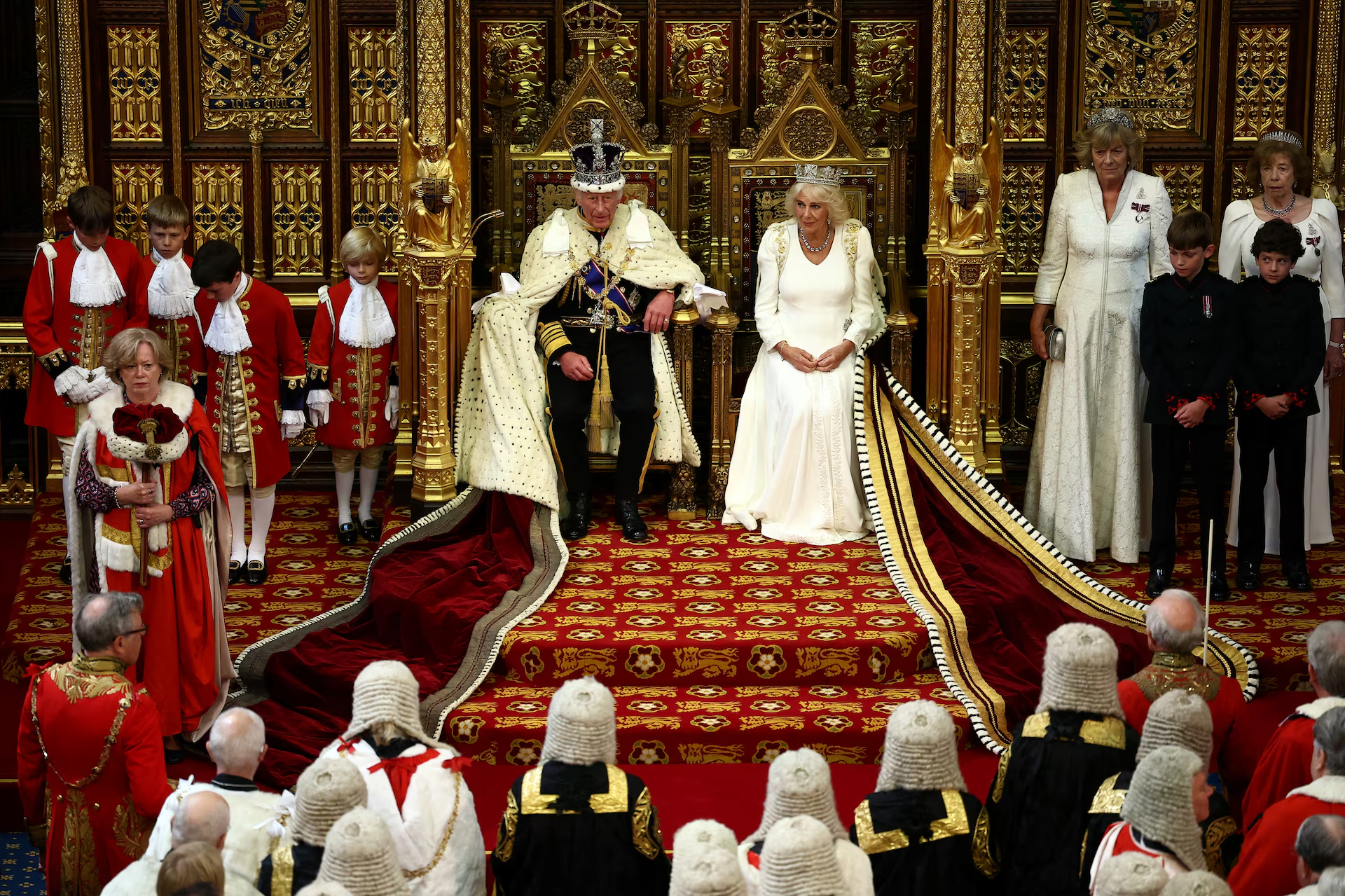
King Charles III and Queen Camilla ,during the State Opening of Parliament, at the Houses of Parliament, in London, on July 17. HENRY NICHOLLS/Pool via REUTERS
The King’s Speech is a critical event in the UK's parliamentary system, laying out the legislative plans for the upcoming session. On July 17, 2024, the newly elected Labour Government delivered its first King’s Speech, introducing two significant employment-related bills:
- Employment Rights Bill
- Draft Equality (Race and Disability) Billth
The previous Conservative Government had proposed an Employment Bill in 2019, which never came to fruition, leading to piecemeal reforms through various Private Members' bills. In contrast, Labour has pledged to introduce its Employment Rights Bill within the first 100 days, describing it as "the biggest upgrade to workers' rights in a generation."
Employment Rights Bill
The Labour Government has outlined a comprehensive plan to enhance workers' rights, reflecting its pre-election manifesto. The proposed Employment Rights Bill aims to:
- Ban exploitative zero-hours contracts, ensuring workers have contracts that reflect their regular hours with reasonable notice of shift changes.
- End the practices of "fire and rehire" and "fire and replace," providing effective legal remedies.
- Provide day-one rights for parental leave, sick pay, and protection from unfair dismissal for all workers, with employers able to implement probationary periods.
- Eliminate the lower earnings limit and the three-day waiting period for Statutory Sick Pay, benefiting 1.5 million low-earning workers.
- Make flexible working the default from the first day of employment, requiring employers to accommodate this as far as reasonable.
- Strengthen protections for new mothers, preventing their dismissal for six months after returning to work, except in specific circumstances.
- Establish a Fair Work Agency to enforce workplace rights.
- Create a Fair Pay Agreement in the adult social care sector, with potential expansion to other sectors.
- Reinstate the School Support Staff Negotiating Body to set national terms, conditions, and pay for school staff.
- Update trade union legislation to remove restrictions and simplify the statutory recognition process, fostering good faith negotiation and bargaining.
These reforms represent a substantial shift in employment practices, requiring employers to rethink recruitment, probation management, and workplace flexibility.
Draft Equality (Race and Disability) Bill
The draft bill aims to address inequalities faced by ethnic minorities and disabled individuals by:
- Introducing a statutory right to equal pay for these groups.
- Mandating ethnicity and disability pay reporting for large employers (with over 250 employees).
Ethnicity pay reporting was previously considered by the Conservative Government in 2019 but was not implemented due to concerns about confidentiality, data accuracy, and business burdens. Labour's draft bill indicates a commitment to consultation before finalising the legislation, suggesting a gradual approach to enacting these changes.
What does the future hold?
The details in the draft legislation will be crucial for understanding the full scope of the proposed changes. Labour has committed to introducing the Employment Rights Bill within the first 100 days, which could be presented to Parliament between October 12 and October 25, 2024.
Introducing a bill is the first step in a lengthy legislative process involving debates, amendments, and approvals from both Houses of Parliament. The bill must receive Royal Assent to become law, and even then, transition periods and additional guidance may be required. Thus, significant changes may only take effect in the following year, but substantial shifts in employment law are on the horizon.
This publication is a general summary and should not replace specific legal advice tailored to your circumstances.

-1.png?width=1460&height=298&name=BANNERS%20DE%20CIERRE%20(4)-1.png)